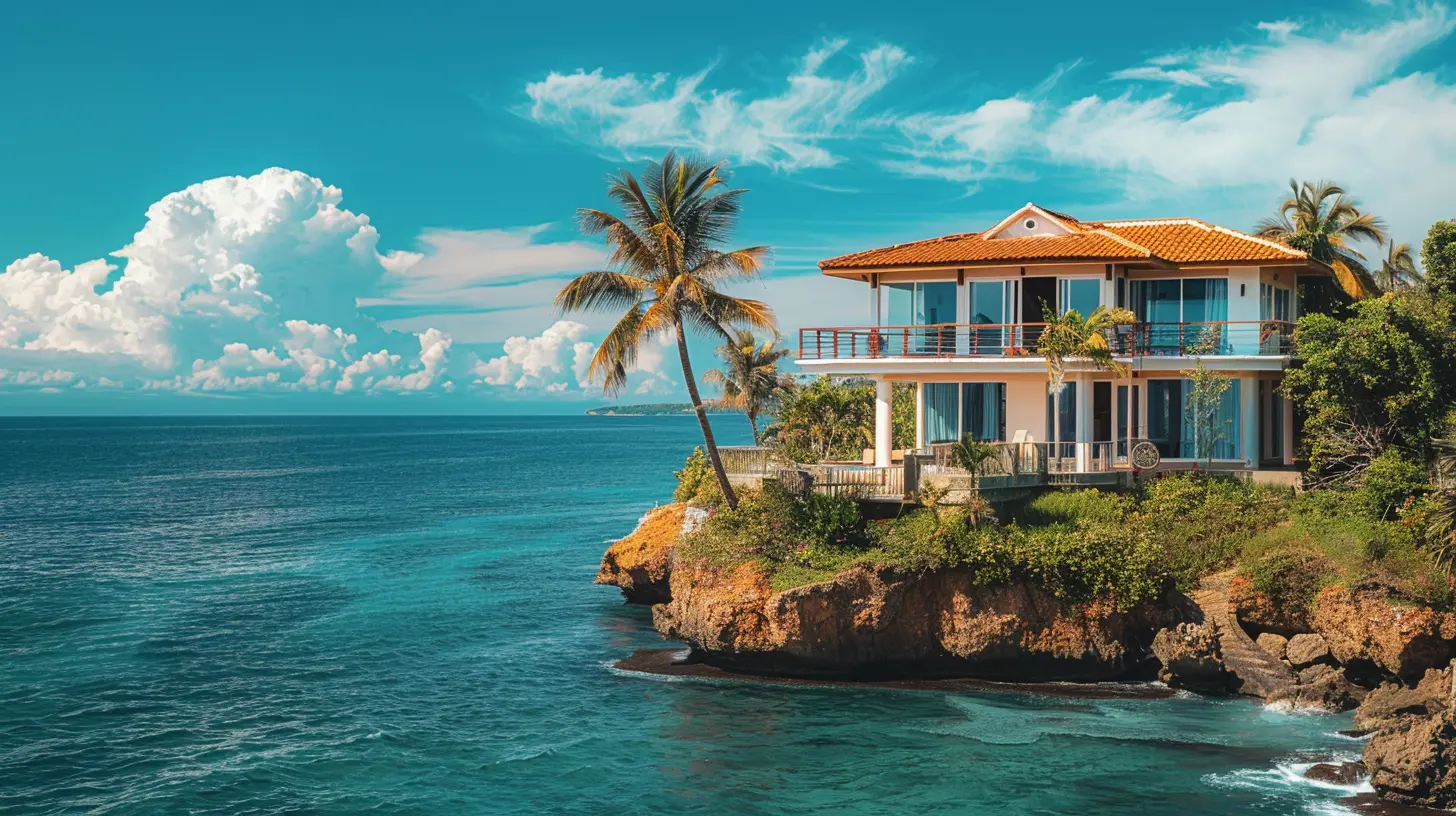The Impact of Location on the Appreciation of Vacation Homes
31 May 2025
Investing in a vacation home is more than just having a cozy retreat for weekend getaways—it's also a smart financial move when done right. But what truly determines whether your vacation home will appreciate in value over the years? One major factor stands tall above the rest: location.
Yes, location is the golden rule in real estate, and when it comes to vacation homes, it plays an even bigger role in determining how much your property will be worth in the future. So, let’s dive in and break down why location matters and how you can make a well-informed decision when purchasing a vacation home. 
Why Location is the Biggest Factor in Vacation Home Appreciation
Real estate values fluctuate based on various factors—market conditions, economic stability, demand, and supply. However, location is the foundation that holds everything together. A vacation home in a prime location will almost always see higher appreciation than one in an area with little demand.Think of it this way: If you're buying a vacation home, you’re not just buying a house; you're buying the experience that comes with it. People gravitate toward properties that offer breathtaking views, convenient access to attractions, and a lifestyle that enhances their leisure time.
So, what are the key location factors that drive appreciation? Let's break them down. 
1. Proximity to Tourist Attractions
One of the biggest drivers of vacation home appreciation is how close it is to popular attractions. Whether it's a serene beach, a majestic mountain range, or a lively theme park, properties near top tourist destinations will always be in demand.For example, beachfront properties appreciate at a much faster rate than inland homes because people will always be drawn to the ocean. The same goes for ski chalets in popular winter resorts or lakefront homes in well-known vacation hubs.
What to Look For:
- Properties within walking distance of key attractions- Homes with unobstructed views of natural wonders
- Easy access to local activities, landmarks, and entertainment

2. Accessibility and Infrastructure Improvements
A vacation home that’s easy to get to will always have better potential for appreciation. If your property is located far from airports, highways, or transportation hubs, fewer people will want to buy it—simple as that.Additionally, areas where the government or private developers are investing in infrastructure (such as new roads, public transport, or better utilities) often see a surge in property values.
Signs of a Good Investment:
- Close proximity to major airports or highways- Planned or ongoing infrastructure projects
- Well-developed public transportation options

3. Year-Round Appeal vs. Seasonal Demand
Some vacation destinations thrive only during a specific season. A ski resort, for instance, may be buzzing during winter but experience a slump in the warmer months. On the other hand, locations with year-round appeal, like the Florida coast or cities with diverse seasonal attractions, tend to appreciate more steadily.This is because homes in year-round destinations can generate higher rental income throughout the year, making them more attractive to buyers and investors.
What Works Best:
- Locations that offer activities for all seasons- Places with a mix of indoor and outdoor attractions
- Areas with strong local communities that support tourism year-round
4. Safety and Crime Rates
Nobody wants to vacation in a place where safety is a concern. If the location of your vacation home has high crime rates, it will struggle to attract buyers or renters, which directly impacts appreciation.People value peace of mind, so areas with low crime rates, gated communities, and strong security measures tend to do better when it comes to property value growth.
Things to Research:
- Crime statistics of the area- Presence of private security or neighborhood watch programs
- Overall reputation of the community
5. Local Economy and Job Market
A strong local economy contributes significantly to the appreciation of vacation homes. The reason? Thriving economies attract businesses, boost tourism, and increase demand for real estate.A vacation home in an area with booming tourism, steady employment rates, and growing industries is far more likely to increase in value over time. Destinations with a strong local job market are also more resilient during economic downturns.
Key Indicators:
- Low unemployment rates- Presence of major employers or industries
- Growth in local businesses and services
6. Supply and Demand Dynamics
Vacation homes in areas with limited supply and high demand often appreciate the fastest. If there's a limited number of properties but a growing number of people wanting to buy or rent, prices naturally rise.For example, a remote island with strict development laws will likely have vacation homes that appreciate faster than a place where land is abundant, and new properties are constantly being built.
What to Watch:
- Areas with zoning restrictions that limit new development- Locations with a history of rising property values due to high demand
- Regions that continuously attract tourists and investors
7. Climate and Natural Disasters
The weather and potential for natural disasters can also impact appreciation. Locations with mild, desirable climates tend to attract buyers, while areas prone to hurricanes, floods, or wildfires may have higher insurance costs, discouraging investment.This doesn’t mean homes in disaster-prone areas can’t appreciate, but it’s important to weigh the risks and costs before diving in.
Things to Consider:
- Historical weather patterns in the area- Insurance costs for natural disaster coverage
- Local government measures to prevent or mitigate disasters
8. Short-Term Rental Potential
Vacation homes often double as income-generating properties through short-term rentals. If you're planning to rent out your home when you're not using it, the local rental market and regulations will significantly impact appreciation potential.Airbnb-style rentals can dramatically increase demand for vacation homes in popular areas. However, local laws regarding short-term rentals can either boost or hinder appreciation, so research carefully before committing.
Things to Check:
- Local short-term rental regulations (Are they strict or flexible?)- Average rental income potential per month
- Demand for vacation rentals in peak and off-peak seasons
Final Thoughts: Making a Smart Investment
Buying a vacation home is a huge decision, and location should be at the top of your checklist. While many factors influence property appreciation, choosing a home in a prime location will always give you an edge.If you're looking for strong long-term value, go for a property that’s near attractions, easily accessible, safe, and offers year-round appeal. Do your homework, analyze trends, and think long-term—because when it comes to real estate, location isn’t just a factor; it’s the foundation of wealth building.
Happy house hunting!
all images in this post were generated using AI tools
Category:
Vacation HomesAuthor:

Travis Lozano
Discussion
rate this article
3 comments
Cecilia Lambert
Location truly drives value.
June 8, 2025 at 2:44 AM

Travis Lozano
Absolutely! Location is a key factor in real estate, significantly influencing the appreciation and desirability of vacation homes.
Ashira Wyatt
Great insights! The article beautifully highlights how location significantly influences vacation home value. It’s crucial for buyers to consider both current trends and future potential when investing. Thanks for sharing this valuable perspective!
June 7, 2025 at 3:12 AM

Travis Lozano
Thank you for your thoughtful comment! I'm glad you found the insights valuable. Location truly is key in vacation home investments!
Maxwell Hubbard
Great insights on how location influences vacation home appreciation! It's fascinating to see how factors like accessibility and local amenities play a crucial role. This article is a valuable resource for both buyers and investors looking to make informed decisions. Thank you!
June 4, 2025 at 11:35 AM

Travis Lozano
Thank you for your kind words! I'm glad you found the insights valuable for informed decision-making.



